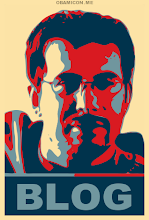One of the most unlikely and ironic unintended consequences of President Bush's forays into the Middle East is the recent developments of democratic revolution.
I say "unintended" because it would be foolish to present the slow-simmering uprisings in Lebanon and the about-faces in governance by Egypt and Saudi Arabia as anywhere near the top ten in Bush's everchanging reasons for invading Iraq. Whether the reason was capturing Osama bin Laden, weapons of mass destruction, oil, Saddam Hussein, or democracy--he finally found a reason that panned out.
Nevertheless, whether the nearly one million anti-Syria protesters in Beirut are a direct result of the pressure the administration has exerted in the region for the last three years were merely a coincidence or "perfect storm" of factors, the facts are that they are occurring under President Bush and its his accomplishment to reap. President Reagan did the same thing by telling Gorbachev to "tear down this wall" referring to the Berlin Wall. In actuality, the Soviet model had been disinegrating for decades. Reagan was lucky to be there at its conclusion and subsequently kicked the last slab of concrete and won, for now, historical praise.
Other than the self-proclaimed genius that is Bush geo-politics, what could be the factors that's leading to this groundswell of burgeoning democracy? Satellite television.
For Americans, the beauty of satellite television is 500 channels (and nothing on...), on-demand programming and dirty movies. To the rest of the world, especially the oppressed world, satellite television means unfettered access to an unvarnished and thoroughly opposite view of the news. It's the prime reason that Saddam Hussein and ayatollahs in Iran banned satellite dishes. They are what the printing press was to the enlightenment. A method by which people under dictatorships like Syria, Iran, Saudi Arabia and formerly Iraq can learn not only what going on in the world but more importantly, how the world views them. Not only is the news effective, but also in the traditional method of promoting western ideas and attire throught sitcoms and movies.
In Iran, which without any western intervention is about to withdraw from its religious underpinnings, has nearly half its population under 14 years of age. In addition, the state has foundered when it comes to finding work for this large underaged class. Unemployment is floating around 20 percent. What you have in Iran is a huge, impressionable demographic already drawn towards western taste and with plenty of time to watch TV. A recipe for change? Sounds better than looking for rockets under stones in the desert, to me.
Tuesday, March 15, 2005
Subscribe to:
Post Comments (Atom)

No comments:
Post a Comment